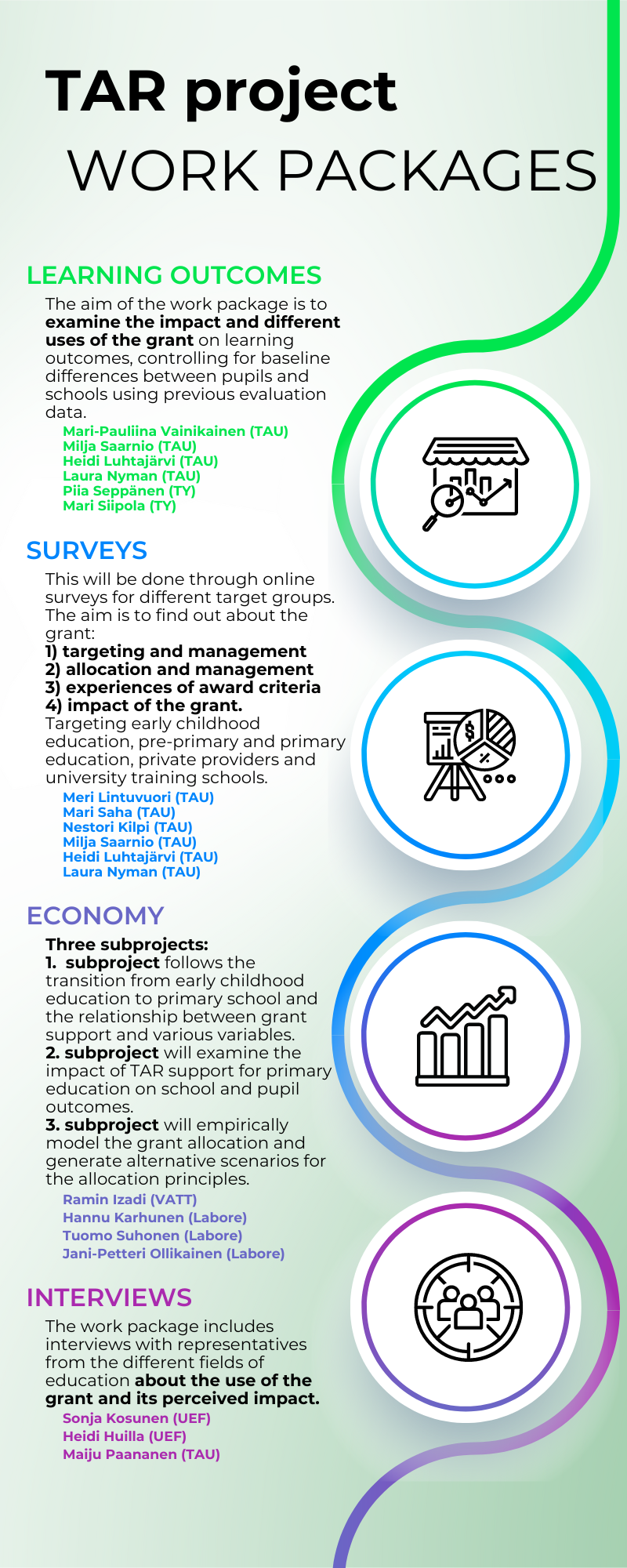
TAR project
The aim of the TAR project is to study the effectiveness of the state’s needs-based funding to promote educational equality and equity in early childhood education, pre-primary and primary education. The project is a research project of a consortium of the Tampere University, the University of Eastern Finland, the University of Turku, the Labour Institute for Economic Research LABORE and the VATT Institute for Economic Research.
Over the past decade, the learning outcomes of Finnish comprehensive school pupils have been on the decline. In addition to the increasing differentiation of learning outcomes according to pupils' backgrounds, there has been growing regional segregation within towns and cities, and hence a trend towards segregation between schools. Observing early childhood education, the trend towards segregation has been fueled, for example, by the growth of private providers.
In 2009, the needs-based funding was opened to municipalities to help offset these disparities. For the time being, the grant will be allocated based on criteria such as the level of education, unemployment rate and proportion of foreign-language speakers in the local population. This year, for the first time, the grant will be awarded for four years at a time. However, there is very little nationally comprehensive research data on
1. the use and allocation of the grant,
2. the effectiveness and development needs of the grant criteria,
3. the effectiveness of the grant; and
4. the management of the grant.
The TAR project aims to address these research needs by making use of a wide range of register data, collecting new quantitative and qualitative data, and by taking a multidisciplinary approach to the subject. The research will focus on all Finnish municipalities, and all Finnish- and Swedish-speaking actors in early childhood education, pre-primary and primary education will be targeted.
The REAL Research Centre at Tampere University is the coordinator of the four-year TAR project. The project consists of four work packages, which together aim to address all the research gaps described above. The work packages are illustrated in the picture.
An interim report will be published in 2026 and a final report in late 2027. The project is funded by the Ministry of Education and Culture.
Project leader
Mari-Pauliina Vainikainen
Professor
Research Centre for Education, Assessment, and Learning
Tampere University
mari-pauliina.vainikainen@tuni.fi
+358 50 437 7303
Contact person
Heidi Luhtajärvi
Researcher
Research Centre for Education, Assessment, and Learning
Tampere University
heidi.luhtajarvi@tuni.fi
+358 50 479 2909








